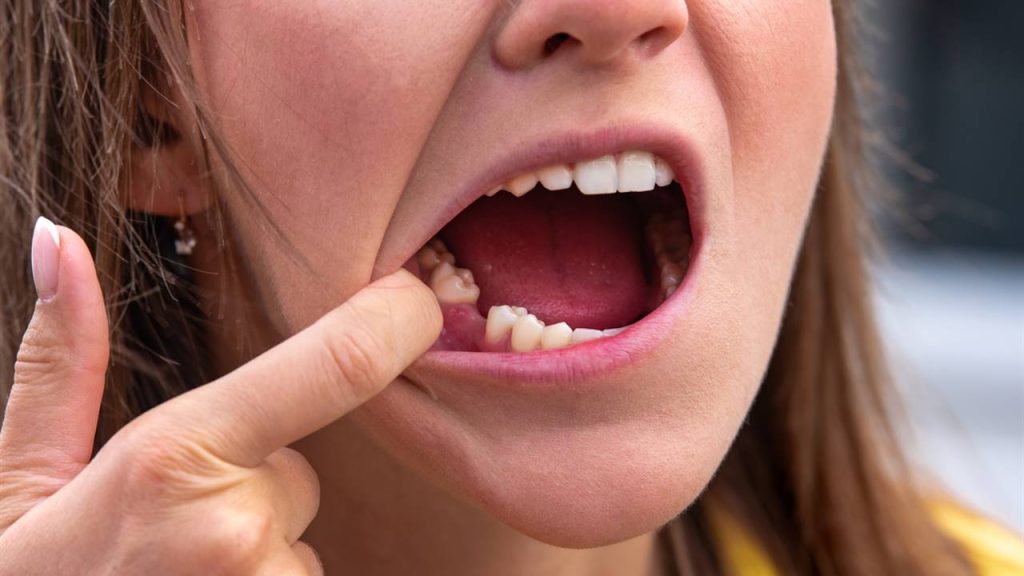In certain cases, teeth that were supposed to come in do not. Knowing what should be allowed to intervene on the causes, and early diagnosis avoids problems.

- What is dental agenesis: when some teeth stop coming out
- Why don’t some teeth forms?
- Can agenesis be prevented?
It is increasingly common that there are people who do not develop all the teeth, even having, otherwise, excellent dentures. It happens especially with wisdom teeth, although they are not the only definitive pieces that may never come out. The phenomenon of dental agenesis is behind this curious trend.
WHAT IS DENTAL AGENESIS: WHEN SOME TEETH STOP COMING OUT
The fact that a tooth or tooth does not erupt or appear in the mouth can be due to several causes: that it does not exist, due to genetic factors, or that there is not enough space for it, so the tooth remains included in the bone.
The reasons why an existing tooth cannot find space to come out are in turn different:
- a direction deflected for its eruption;
- premature loss of the baby tooth;
- large teeth;
- supernumerary teeth, i.e., extra teeth, which prevent the corresponding tooth from erupting properly;
- the presence of cysts.
WHY DON’T SOME TEETH FORMS?
If a tooth or molar does not exist it is called agenesis. The most common types of agenesis are:
- wisdom teeth, also called wisdom teeth;
- those of the lower second premolars;
- those of the second upper incisors;
- those of the upper second premolars;
- those of the lower central incisors.
From the second month of intrauterine life the sketches of milk teeth are formed. And the definitive ones, from the fourth month.
For the harmonious development of the fetus, it is important that the mother follows a balanced diet and avoids medications and alcohol, which can interfere with the development of the maxillary bones and, therefore, in the formation of teeth.
The genetic factor of agenesis is proven because there are embryology studies that determine alterations of the genes responsible for tooth development.
In addition, there is the factor of the evolution of the species: less and less is chewed and it is already known that what is not used is atrophied from generation to generation.
In fact, the teeth that disappear are the “transitional” teeth, that is, the teeth without a specific function of tearing or crushing.
In the specific case of wisdom teeth, they are usually missing for a matter of adaptation, since the jaw does not usually have room for them.
CAN AGENESIS BE PREVENTED?
Third molars or wisdom teeth erupt between the ages of 18 and 21.
Early diagnosis by the professional is essential, since radiography is the only method that allows to rule out any possible anomaly.
As a treatment of agenesis, it is advisable to keep the space of the tooth absent to be able to replace it, since otherwise the adjacent teeth can be rovered to close the space.
In any case, the cause that prevents the eruption of the definitive tooth must be treated.
Feeding complete vitamins and minerals before a possible pregnancy may be the best prevention.
It is also important that from three to six years children follow a varied diet and chew food well so that the change from temporary to definitive teeth occurs well.
Chewing hard, crunchy foods promotes change.






